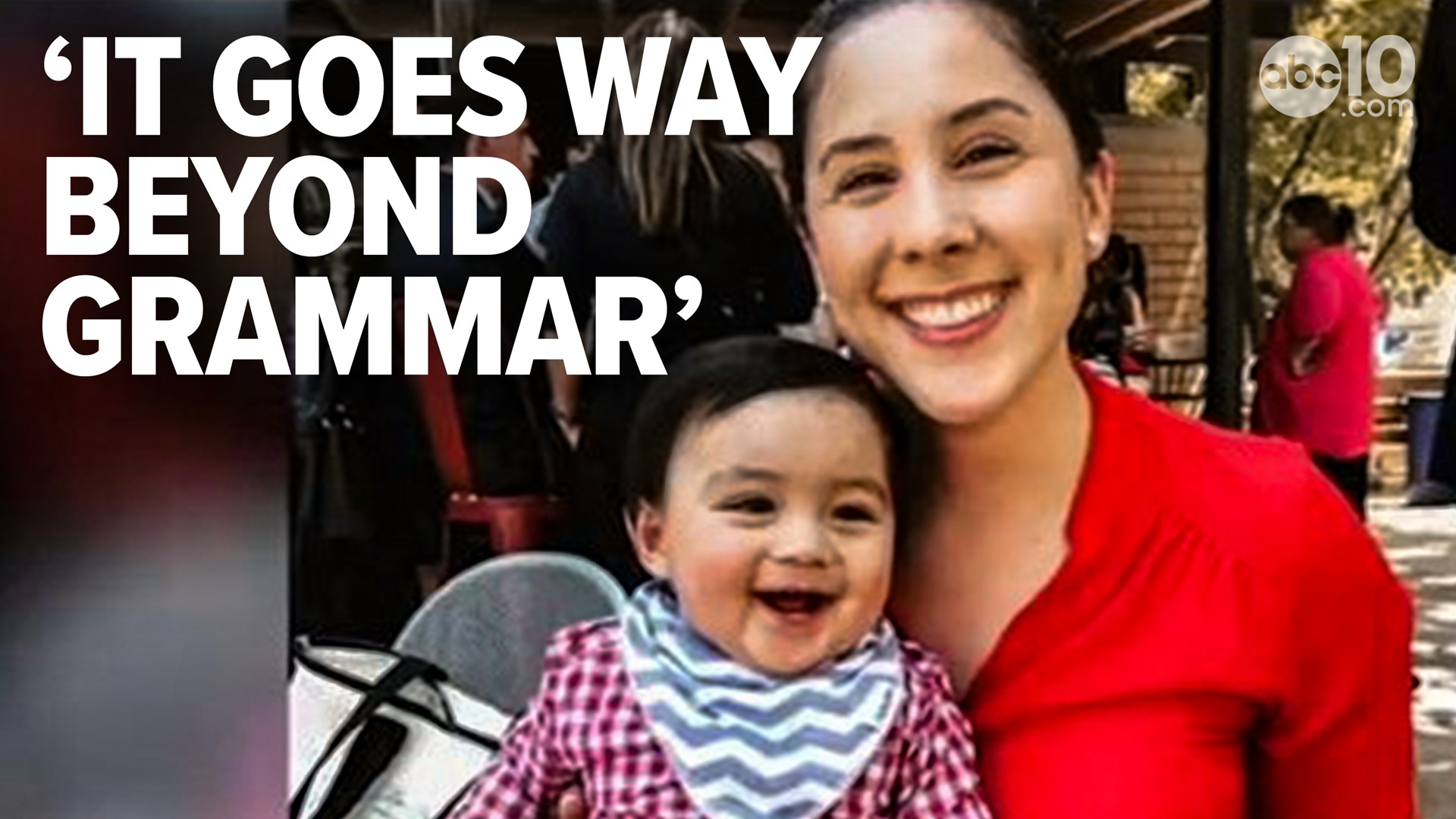ELK GROVE, Calif. — Nancy Chaires Espinoza and Pablo Espinoza live in Elk Grove and want the very best for their son. Like many parents, it starts with a name. Together, they named their son Nicolás Espinoza Chaires because it's a family name.
"As parents, we all choose our children's name with a great deal of thought and a lot of love goes into them," said Chaires Espinoza. "In a lot of cultures, the name carries a lot of symbolism and meaning."
Nicolás, who is 6-years-old, is bicultural. Chaires Espinoza says her family is from Mexico and Pablo was born in Ecuador.
The two are focused on making sure their son understands the importance of diversity, equity, inclusion and belonging. They say it starts with him learning about his roots at a young age.
"Nicolás has been growing up and learning about all of those cultures," said Chaires Espinoza.
The Espinoza family is also pushing for the state of California to be more inclusive, too. They want California to recognize the correct spelling of their son's name 'Nicolás' on his birth certificate. That means putting an accent mark on the letter 'a.'
California does not allow the use of diacritical marks, like tildes and accents, on marriage licenses and certificates of birth or death. Diacritics are marks placed above, below, or next to a letter to indicate a specific pronunciation of a name or word.
"It goes way beyond grammar," said Pablo Espinoza. "When we wanted to put the name on his birth certificate, when he was born, we found out that it was illegal. And I was like, 'really?'"
There are specific requirements for completing a birth certificate in California.
According to the California Department of Public Health, a birth certificate can only be completed in the English-language. The CDPH Birth Registration Handbook outlines the '"appropriate punctuation" and "unacceptable entries."
Some examples of "appropriate punctuation" for vital records include:
- hyphen such as "Smith-Jones"
- apostrophe as in "O'Hare"
- period as used with "Jr."
- comma such as "Smith, Jr."
Some examples of "unacceptable entries" for vital records include:
- pictographs – a picture
- ideograms – a picture or symbol that represents a thing or an idea, but not a particular word or phrase for it.
- diacritical marks – any of various marks added to a letter to indicate its pronunciation or to distinguish it in some way, e.g., è, ñ, ē, ç
Since California is one of the most diverse states in the country, the Espinoza family says more needs to be done to recognize people of all backgrounds and cultures, including Spanish-speaking communities.
"A name with proper spelling, not just for Latinos but for people in other cultures and ethnicities, is important," said Espinoza. "It's a representation of who we are. It's part of our roots."
Assemblymember Blanca Pacheco agrees. Pacheco was elected to the California State Assembly in Nov. 2022 to represent the 64th Assembly District.
Pacheco recently introduced her first bill, Assembly Bill 77. It would allow for the use diacritical marks, like á and ñ, on birth certificates and other government documents.
It would also require the State Registrar to review an amendment request, if the request includes a payment of a specified fee, to issue a new document with the accurate name identified in the request.
"The purpose of the bill is for people to be able to write their names the way it should be said," said Pacheco.
Similiar legislation failed in the past, twice.
In 2014, then-Assemblymember Nancy Skinner introduced AB 2528. It would have required the State Registrar to ensure diacritical marks are properly recorded on birth certificates and other records.
AB 2528 was held in the Assembly Appropriations Committee. The Committee is responsible for reviewing all bills with any fiscal impact after passage by a policy committee. The goal of the committee is "sound, responsible, affordable fiscal policy."
In an analysis of AB 2528, the Committee documented the bill would've had a "potential costs in excess of $10 million for reprogramming and upgrades of hardware and software."
In 2017, then-Assemblymember Jose Medina introduced AB 82. It would've allowed diacritical marks, too. Even though the Legislature passed the bill, then-Governor Edmund "Jerry" Brown vetoed it.
In a veto letter sent to the California State Assembly, Brown stated the change would be "difficult and expensive." He went on to explain AB 82 would "create inconsistencies in vital records and require significant state funds to replace or modify existing registration systems."
State agencies and groups, like the County Recorder's Association of California, CDPH, and California Association of Clerks, also expressed concerns in the past about the use of diacritical marks on vital records.
"We do not anticipate there being a high cost," said Pacheco. "People can have their birth certificates amended and pay a fee that needs to be paid. I authored AB 77 because I was shocked that accent marks are not allowed. California is a diverse state, and that's why this is the first bill that I introduced."
The Espinoza family is in full support of AB 77. They say it's an opportunity for their son to learn more about diversity and get involved in making change.
"We really want him to learn that we all have a responsibility as members of the community and as citizens of the state," said Chaires Espinoza. "If we see something that we do not think is fair, we stand up, speak out, and try to make it right."
ABC10 reached out to the California Department of Public Health about AB 77. They sent us an email saying, "The California Department of Public Health does not comment on proposed legislation."



















